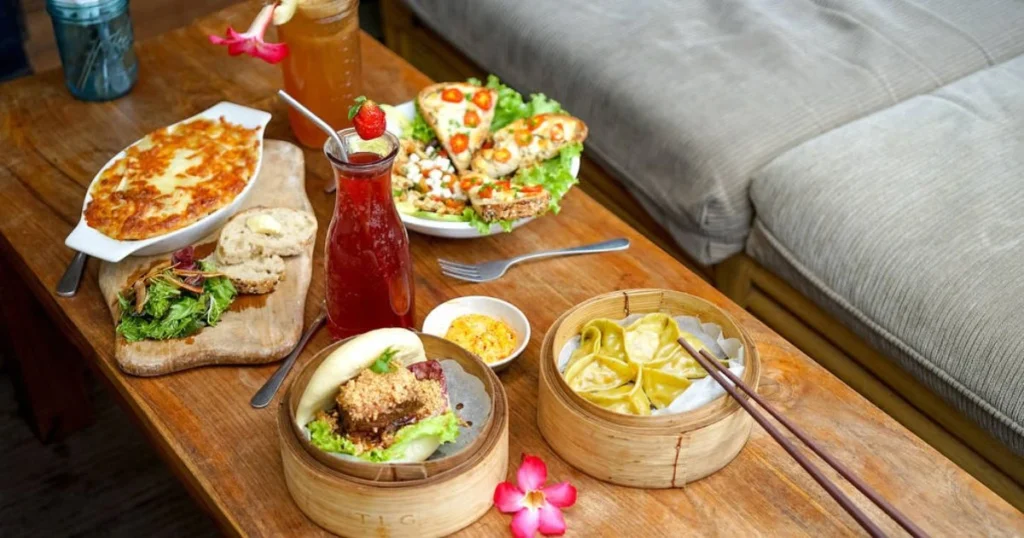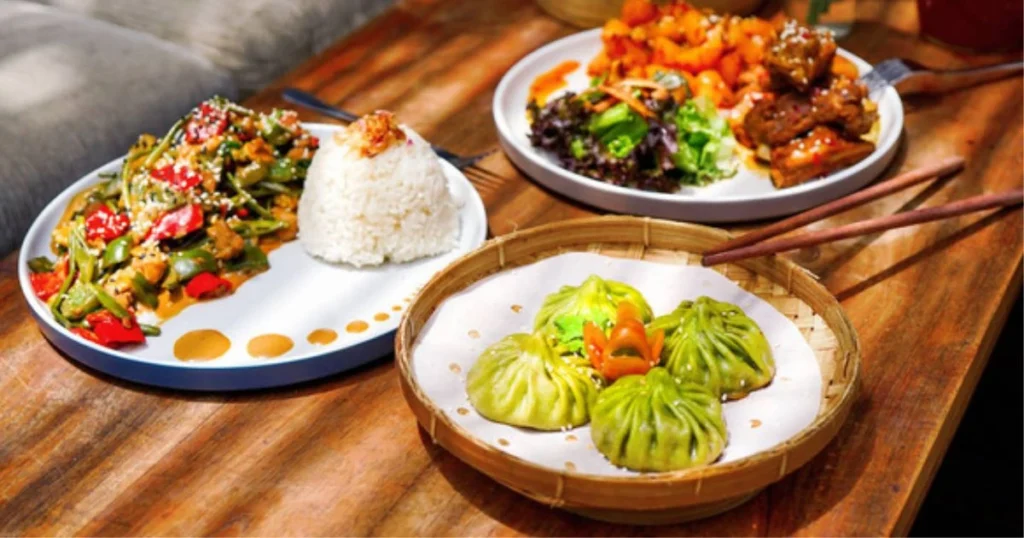Breakfast in China is more than just a meal. It’s a colorful culinary adventure that shows off the country’s rich traditions. When you look into what Chinese people eat for breakfast, you find a world of tastes that go beyond what we’re used to in the West.
Chinese breakfasts are all about hot, savory dishes filled with healthy ingredients. Each area has its own special breakfasts, using local foods and cooking ways. This makes breakfast in China a varied and thrilling food journey.
Imagine enjoying steaming baozi (stuffed buns) or crispy youtiao (fried dough sticks). Chinese breakfasts mix great taste, health, and cultural heritage in every bite. These foods are more than just food; they stand for community, family ties, and local pride.
Key Takeaways
- Chinese breakfast emphasizes hot, savory dishes
- Regional variations create unique morning meal experiences
- Nutritious ingredients are central to breakfast selection
- Breakfast reflects cultural and local traditions
- Traditional cooking methods preserve culinary heritage
Traditional Chinese Breakfast Culture and Customs

Breakfast in China is more than food; it’s a cultural experience. It shows the diversity and traditions of different regions. The morning meal is key, combining nutrition, taste, and social bonding.
Exploring Chinese breakfast reveals a rich culinary world. It’s shaped by local ingredients, climate, and history. Each region has its own special way of starting the day.
Regional Breakfast Variations Across China
China’s vast size leads to amazing breakfast diversity. Each province has its own morning dishes. These dishes reflect local produce and traditions:
- Northern China: Wheat-based dishes like baozi and jianbing
- Southern China: Rice-based breakfasts with seafood
- Sichuan Province: Spicy dishes with bold flavors
- Guangdong Region: Dim sum and delicate pastries
The Importance of Hot
Foods in Chinese Breakfast
Hot foods are key in Chinese breakfast culture. Warm meals are believed to aid digestion and give energy for the day.
| Region | Typical Hot Breakfast Item | Key Characteristics |
|---|---|---|
| Beijing | Hot Soybean Milk | Warming, nutritious, protein-rich |
| Shanghai | Congee | Comforting, easily digestible |
| Guangzhou | Dim Sum | Varied, steamed delicacies |
Morning Tea Traditions
Morning tea in southern provinces like Guangdong is more than a drink. It’s a social ritual. Families and friends come together, sharing stories and small plates. This turns breakfast into a time for bonding.
Discovering Chinese breakfast reveals a world of flavors, techniques, and cultural importance. It’s more than just eating.
Popular Savory Chinese Breakfast Dishes
Exploring Chinese breakfasts reveals a world of savory dishes that excite the taste buds. These dishes offer more than just a morning meal. They showcase a wide range of flavors and textures.
Let’s look at some classic Chinese breakfast favorites:
- Congee (Zhou): A creamy rice porridge that’s a comforting staple. It’s made with:
- White rice
- Chicken or pork stock
- Garnishes like green onions
- Preserved eggs
- Youtiao: Crispy dough sticks great for dipping in congee or soy milk. They’re a key part of Chinese breakfasts.
- Baozi: Steamed buns filled with savory meat or veggies. They offer a quick, satisfying breakfast.
Regional differences are big in Chinese breakfasts. In northern China, wheat-based dishes are common. Southern regions prefer rice-based options. Each area adds its own twist to breakfast, making it a fun culinary journey.
“Breakfast is not just a meal in China; it’s a cultural experience that connects generations and regions.” – Chinese Food Historian
Chinese breakfasts cater to all tastes, from warm to crispy to rich. They focus on fresh ingredients and balanced nutrition. This makes them both tasty and healthy.
Breakfast for Chinese: Essential Ingredients and Preparation Methods
Chinese breakfast recipes offer a world of flavors. They mix fresh ingredients with old cooking ways. Learning about these can make your morning meals more exciting.
It’s simple yet healthy. It uses rice flour, soy milk, eggs and wheat. Green onions, ginger and garlic add a distinct flavour to your breakfast.
Common Breakfast Ingredients
Start your Chinese breakfast with common ingredients. You’ll need white rice flour, wheat flour, and millet. Add fresh eggs, tofu, and veggies for a balanced meal.
Traditional Cooking Techniques
Learning Chinese cooking methods is key. Steaming is a big one, keeping food healthy and soft. Stir-frying and boiling are also important for quick, tasty meals.
Time-Saving Preparation Tips
Even busy people can make Chinese breakfasts. Prep ingredients the night before and use small steamers. Keep pantry items ready. This way, you can make great breakfasts with little effort.

FAQ
What are the most common breakfast dishes in China?
In China, popular breakfasts include congee (rice porridge), youtiao (fried dough sticks), and baozi (steamed buns). Jianbing (savory crepes) and soy milk are also favorites. Each region has its own special dishes, showing off local tastes and traditions.
Is Chinese breakfast different from Western breakfast?
Yes, they are tasty and spicy, unlike Western foods. You will find rice dishes, steamed buns and hot soups. These foods are chosen for their energy-boosting properties.
Are Chinese breakfasts healthy?
Many foods are considered nutritious. Dishes like porridge, which is high in lean protein, and baozi, which is full of vegetables, provide a good mix of nutrients. Steaming is a popular cooking method, which makes these dishes even healthier.
How long does a typical Chinese breakfast take to prepare?
Preparation times vary, but many dishes are quick. Jianbing takes 5-10 minutes, youtiao is fresh from vendors, and baozi steams in 10-15 minutes. Families often prep ingredients the night before or buy ready-made items.
Do Chinese people eat breakfast at home or outside?
Both home and outside options are common. Urban Chinese often grab breakfast from street vendors or local restaurants. In cities like Beijing and Shanghai, street food stalls are very popular for quick, affordable meals.
What beverages are typically served with Chinese breakfast?
Soy milk, both hot and cold, is a traditional choice. Tea is also popular, especially in southern China. Some enjoy warm water or light tea with their breakfast.
Are there vegetarian options for Chinese breakfast?
Yes! Many of the dishes are suitable for vegetarians. Options include vegetable baozi, jianbing, congee, and youtiao with soy milk. These dishes are delicious and nutritious.

